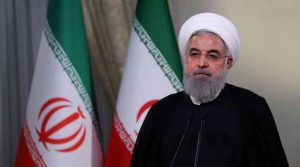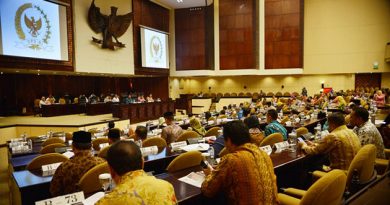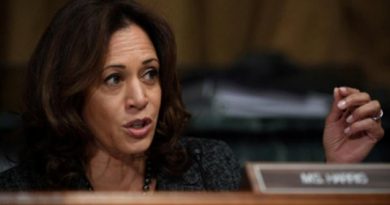Time Running Out to Save Iran Deal as Rouhani Visits Europe

Iranian President Hassan Rouhani sought deeper ties with Switzerland as he tries to press Europe into delivering on its promise to shore up the 2015 nuclear deal, imperiled by the U.S. pullout.
The trip to Bern and then Vienna on Wednesday is likely to be Rouhani’s last European visit before President Donald Trump begins reimposing sanctions on the Islamic Republic beginning Aug. 6. Iran has pledged to resume its nuclear activities, and follow the U.S. out of the accord, unless France, Germany and the U.K. deliver guarantees to ensure investment and trade continue.
The six remaining parties to the agreement will meet in Vienna on Friday to discuss the economic package the Europeans have put together to counter the impact of the U.S. withdrawal, state-run Iranian Students News Agency reported.
At a joint press conference with Swiss President Alain Berset, Rouhani said Iran would remain party to the 2015 Joint Comprehensive Plan of Action as long as it benefited from it. The U.S., he predicted, won’t succeed in slashing Iranian oil exports, the cornerstone of the Islamic Republic’s economy.
“Both countries believe the JCPOA is an important achievement” that “needs to be preserved for the sake of peace and international security,” Rouhani said. But neither he nor Berset offered details on the way forward as uncertainty for European companies dealing with Iran takes its toll.
Since the U.S. pullout in May, deals with Europe worth hundreds of millions of dollars have stumbled because European companies are afraid of running afoul of U.S. sanctions.
“There’s a great deal at stake — trade wars, reputation and European security,” said Paul Ingram, executive director of the British American Security Information Council, a nuclear disarmament group, ahead of the visit. “Rouhani will need to press the Europeans for particular commitments beyond the warm words, and communicate his own limited domestic ability to stick with the JCPOA should the Europeans cave under U.S. pressure.”
The visits to Switzerland and Austria were significant because the Swiss represent U.S. interests in Iran, and Austria holds the rotating European Union presidency.
The fate of the accord, which capped Iran’s most sensitive nuclear work in return for lifting many sanctions, was plunged into uncertainty by Trump’s May 8 decision to exit even though international inspectors consistently verified that Tehran was complying. The U.S. accuses Iran of violating the accord’s spirit through destabilizing activities the Middle East.
A large bulk of Iran’s oil revenue and banking ties will be at stake if neither can be protected by the European Union. Rouhani, who’s facing intense pressure from hardline conservatives at home who accuse him of being naïve for ever trusting the U.S., would be left with little incentive to remain in the deal or comply with its terms.
courtesy : Bloomberg
photo : alaraby.co.uk
[social_warfare buttons = “Facebook, Pinterest, LinkedIn, Twitter, Total”]



